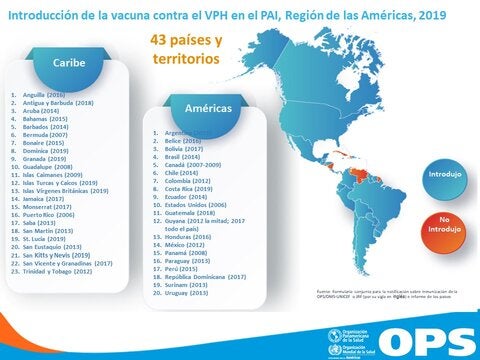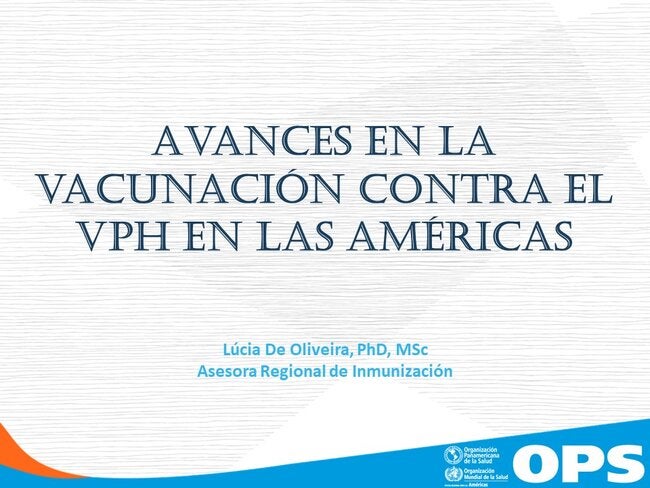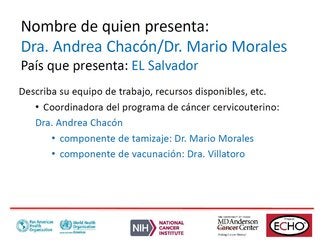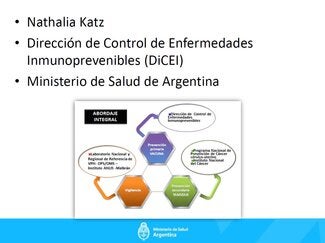The third meeting for ECHO Latin America ELA Project: Monthly teleconferences about cervical cancer prevention and control programs took place on Friday, July 31, 2020.
During the meeting, ECHO ELA Project collaborators Melissa Lopez Varon, MD Anderson Cancer Center (MDACC), Sandra L. San Miguel, National Cancer Institute (NCI), and faculty members, Dr. Silvina Arrossi (Argentina), Dr. Maria Tereza da Costa (PAHO/WDC/Brazil), Dr. Mauricio Maza (El Salvador), and Dr. Mila Salcedo (MDACC/Brazil) welcomed 108 participants, including leaders for national cervical cancer and immunization programs from the Ministries of Health in Latin America, NGO representatives and other professionals working on related projects; Focal Points from each of the PAHO offices in Latin America, PAHO representatives from Washington, D.C., WHO in Geneva, MD Anderson Cancer Center University of Texas, the U.S. National Cancer Institute, and collaborators working on this topic.
Summary from the previous meeting:
La Dra. Mila Salcedo presentó un resumen de la reunión previa. Silvana Luciani presentó el tema didáctico, ‘Desarrollando Planes Nacionales de Eliminación del Cáncer Cervicouterino’ y la Dra. Suyapa Bejarano presentó el caso, ‘Cáncer de Cuello Uterino: Percepciones desde una ONG’. Durante la presentación del caso, y como enfoque principal, se perfiló la capacitad instalada y las oportunidades de adaptación a las restricciones por el COVID-19. El caso presentado de Honduras recalcó la importancia del trabajo comunitario y los modelos de educación. Honduras está implementando la prueba de VPH y está identificando cómo introducir la prueba y lidiar con los aspectos implicados desde la educación, los recursos humanos y los sistemas de información. Se habló también de la importancia de los planes nacionales de control de cáncer cervical y la importancia de poder identificar las fallas de la atención primaria e identificar en qué etapa se pierden las pacientes, así como también se discutió la importancia de tratar de brindar tratamiento oportuno durante el tamizaje. Se comentó que la única vacuna para la región, la cual es muy costo efectiva, es la cuadrivalente. Clínicamente, la Dra. Salcedo resaltó que si las niñas son vacunadas deberán ser examinadas y participar en el proceso de tamizaje regularmente.
Dr. Mila Salcedo provided a summary from the previous meeting. Ms. Silvana Luciani presented the didactic topic, ‘Developing National Cervical Cancer Elimination Plans’ and Dr. Suyapa Bejarano presented the case, ‘Cervical Cancer: Perceptions from an NGO.’ Dr. Bejarano explained the structural capacity and the opportunities to adapt to the new restrictions as a result to COVID-19. The case from Honduras highlighted the importance of community work and the outreach and education models. Honduras is implementing the HPV screening and is also trying to identify how to introduce the screening while dealing with multiple related factors such as education, human resources and information systems. The group discussed the importance of national cervical cancer prevention and control plans as well as the gap areas in primary care to identify where women are lost to care. The group also addressed the importance of providing opportune screening. The only vaccine available for the region, which is very cost effective, is the quadrivalent type. Clinically speaking, Dr. Dr. Salcedo highlighted that the Young girls who are vaccinated should eventually also participate in the screening process regularly.
Didactic Topic
The didactic topic, ‘Advances in HPV Vaccination in the Americas’ was presented by Dr. Lucia de Oliveira, PAHO/WDC. There were two cases presented by representatives from El Salvador and Argentina. Participants were reminded that the ECHO® Project is based on the multilateral exchange of knowledge using cases at the epicenter of the discussion.





